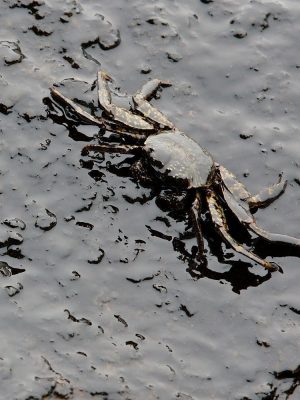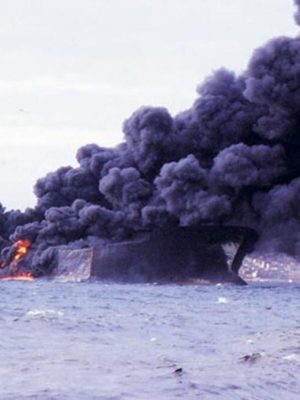Rash and Leak

One of the main concerns of the “International Convention on the Prevention of Pollution of the Seas by Ships” (MARPOL Convention) is the prevention and prohibition of oil, oily waste, ballast waters spilled into the sea by accident.
Pouring fuel into the sea during routine refueling causes a number of important pollution cases, as well as serious concerns about leaks due to errors in following refueling procedures or weakness to follow defined basic instructions.
Experimental analysis shows that fuel often leaks from air vents in fuel tanks. Afterwards, it transports fuel out of the boundaries of the ship and results in smearing in the marine environment.
The main conditions that cause each accident are often different. Of course, it may cause fuel leakage in external factors affecting the operation of the ship. Regardless of external factors, the following were often found to be the cause of accidents:
- The valve to the tank where the ordered amount of fuel is loaded is not completely closed. During the filling of adjacent tanks, the fuel continues to fill unexpectedly to the previous tank, eventually exceeding the tank’s capacity;
- Failure to comply with the maximum loading speed in the bunker of the ship, which is predicted before the operations. As a result of the excessive feed rate, air pockets are formed in the upper frames of the tank. When the fuel reaches the optimum level in the tank, it gets squeezed out of the airspace;
- Failure to comply with the procedures recognized for the top off of tanks. During topping off, two receiver tanks were closed against the flow of one. The flow rate was not lowered sufficiently and increased pressure in the adjacent receiver tank caused overflow.
- Failure to monitor at sufficient intervals during the continuation of the refueling operation caused overflow.
The bunker is just one element of a ship’s dynamic work program, but is categorized as a critical operation. Ordering fuel requires careful planning. He orders the coordination and cooperation of all parties participating from the order stage until the completion of the refueling.
Commercial programs put pressure on ship owners and personnel responsible for ordering fuel within a limited period of time, however, incompatibility with operating procedures recognized by the ship’s Safety Management System during bunker operations, prolonged downtime at the location of the spill and the potential for loss of time increases. . In some countries, deliberate or accidental spilling of the fuel can lead to criminal proceedings and executions.
Therefore, in line with the operational objectives, all hoses, connections, pumps and tanks should be checked at regular intervals by the fitting and tenants at regular intervals. The bunker is determined to coordinate its activities with all business partners to respect this issue.




